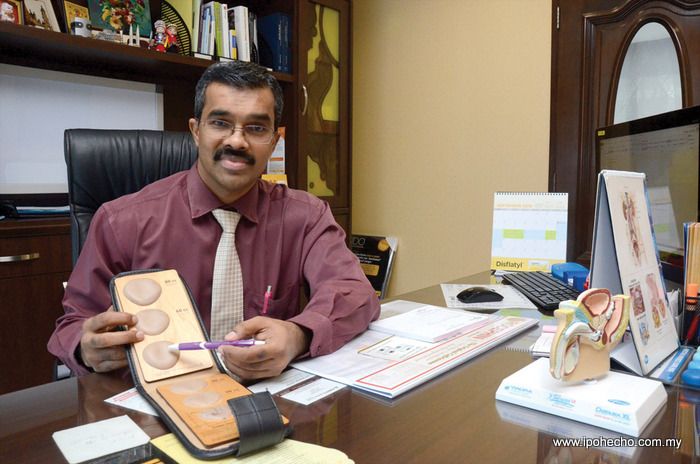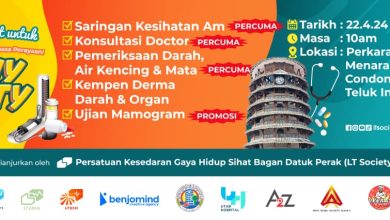

Wellness
In 2014, 49 million cases of kidney stones occurred, resulting in about 15,000 deaths globally. Ipoh Echo recently talked to Dr Kalidasan Govindan, Resident Consultant Urologist at KPJ Ipoh Specialist Hospital about kidney stones, its symptoms, treatments and prevention.
Dr Kalidasan Govindan commenced his practice in KPJ Ipoh Specialist Hospital in February 2012 as a Resident Consultant Urologist. He was attached to Hospital Batu Gajah before furthering his fellowship in surgery at Hospital Ipoh. He became General Surgeon in 2003 in Hospital Ipoh. He took up urology training at Hospital Sultanah Aminah (HSA), Johor Bahru and then he went for Urology Fellowship at Queen Elizabeth Hospital, Adelaide Australia for one and a half years. He then returned to Malaysia and became Head of Urology Department at HSA in 2009.
According to Dr Kalidasan, a kidney stone is formed in the kidneys from minerals in urine. A small stone may pass without causing symptoms. If stones grow to sufficient size (usually at least 4 millimetres) they can cause blockage of the ureter.
Causes
Most stones form due to a combination of genetics and environmental factors. Risk factors include being overweight and not drinking enough fluids. Dehydration caused by low fluids intake is a major factor in stone formation.
High dietary intake of protein, foods rich in oxalate such as grapefruit juice, apple juice, spinach and nut based vegetables may increase the risk.
Symptoms
The pain usually begins in the flank or lower back and often radiating to the groin. This pain typically comes in waves. Other associated symptoms include: nausea, vomiting, fever, blood in the urine, and painful urination. Blockage of the ureter decreases kidney function and dilates the kidney.
Diagnosis and treatment
The diagnosis is usually based on symptoms, urine test to look for blood and medical imaging such as Computed Tomography Urography (CTU). Blood tests may also be useful. Urinary stones are classified by their location in the kidney, ureter, bladder and by chemical composition (oxalate or uric acid rich foods). Extracorporeal shock wave lithotripsy (ESWL) is a non-invasive technique for the removal of kidney stones. Laser lithotripsy / Ureteroscopy is another technique which involves use of Holmium laser to fragment stones and placement of ureteral stent (a small tube extending from the bladder into the kidney) to provide immediate relief of an obstructed kidney.
Those who have previously had stones, prevention is recommended by drinking fluids.
For more information, call Dr Kalidasan Govindan at KPJ Ipoh Specialist Hospital 05 240 8777 Ext. 8301, 8302.


